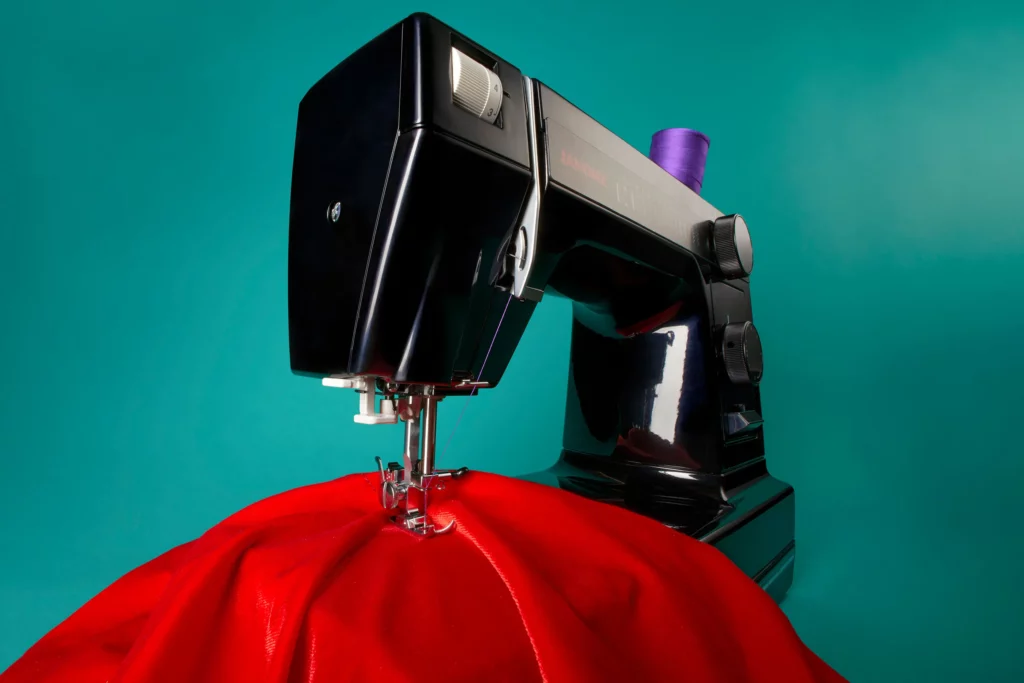A great way to make some supplemental income is to recycle cans for money. The secret, however, is in going about it the right way.
If you know how to recycle cans in a way that promises the best possible profit without having to put in a lot of effort, then there’s good money to be made here.
And as a bonus, participating in recycling and waste prevention projects like this might lead to an increase in your quality of life in more ethereal ways too.
The best part? All it takes is some trash bags and a way to collect cans to get started.
Keep reading to discover all the ins and outs of recycling cans for money!
Table of Contents
ToggleHow Much Do Recyclers Pay for the Cans?
This can vary quite a bit, not only from one recycler to the next, but even from one day to the next. That’s because aluminum’s prices tend to change daily.
As a general rule, expect to get paid in the region of $0.25/pound, which is the current national average.
It’s a good idea to head to iScrap App and sign-up for their email updates – they’re a national expert on scrap metal recycling and update their data daily, often in real-time.
You’re probably wondering why aluminum’s recycling prices fluctuate so much. Well, that’s because it’s based on the current commodities spot price.
Recycling plants tend to take that spot price and slash it in half.
So if they’re offering $0.25/pound, that means the current commodities spot price is about $0.50/pound.
They’re not ripping you off, though. Recyclers need to keep their plants running, after all!
But that’s exactly why we’re giving you this information – so you can compare the national average to what the plant is offering you. If you feel they are trying to rip you off, try to negotiate a fairer price or take your cans to the next place.
How Much Will You Get for Cans With Bottle Bills?
There’s some good news here. If you live in a state that’s enacted a bottle bill, the money you can expect to get just went up astronomically.
In bottle bill states, the law dictates the minimum amount that recycling plants may pay for cans and bottles alike. Currently, there are 10 such states, with minimum payouts usually being $0.05 or $0.10 per can.
That means if you’re in a bottle bill state, the only reason to keep an eye on the national average would be to laugh at how much more money you’re making. At the current national average of $0.25/pound, others are making less than $0.01 for every can they bring in.
To put it into perspective, if you live in a bottle bill state, 1,000 aluminum cans guarantees you between $50 and $100. In other states, those same 1,000 cans are only worth a maximum of $10.
States That Currently Have Bottle Bills:
- California
- Connecticut
- Hawaii
- Iowa
- Maine
- Massachusetts
- Michigan
- New York
- Oregon
- Vermont
If you live in any of these states – or near their borders – recycling aluminum cans will be more profitable for you.
Good news is, 6 more states have proposed enacting bottle bills in 2019. Residents of Arkansas, Florida, Illinois, New Jersey, Tennessee, and West Virginia might soon be able to enjoy the same advantage.
Where to Collect Aluminum Cans
It isn’t going to matter much which state you live in if you don’t know how to collect the cans to begin with. Luckily, you have a few options:
1. Family, Friends, and Neighbors
Your own home is obviously the first place to start. Get yourself a designated recycling bin to keep all your cans in.
Next, talk to any extended family you have staying nearby, as well as your friends. Ask whether they’re taking their cans in for recycling as well – and if not, offer to take them off their hands.
It’s a simple matter of offering to provide a designated trash bag. All they need to do is keep a box (or get their own recycling bin) to keep the cans separate for you.
Finally, approach your neighbors with the same request. What you don’t want to do is start digging in their bins to grab their discarded cans – depending on where you live, you could run afoul of the law for dumpster diving.
At least get their permission if they say they chucked some out recently.
2. Your Workplace
Most companies have a vending machine with sodas in the break room, which can be a great source of extra cans for you.
Start off by enquiring as to what the company currently does with the empty cans once employees are done with their drinks.
If they aren’t doing a recycling drive themselves, ask if you can put some designated boxes next to the vending machines for people to throw their cans in so you can take it home.
Chances are, you’ll probably get some people chucking other waste in there too. Just get a pair of rubber gloves for sorting through it all.
3. Other Local Businesses
Your own workplace won’t be the only one with soda vending machines. Why not approach some of the other local businesses and trying to make the same deal?
This will work especially well with restaurants and bars, which tend to go through a lot of cans. Most of them are simply chucking it all out, but if they’re willing to keep their cans separate from the other waste for you, you’ll have hit the jackpot.
If you don’t mind the extra start-up costs, you could also approach local schools and set up a few recycling bins on the property to start a recycling drive. Kids go through sodas like crazy!
4. Events (Concerts, Festivals, etc)
Whether it’s the local church bazaar, an outdoor concert in the botanical gardens, or a festival in the park, events tend to be the can recycler’s equivalent of a goldmine.
When it comes to outdoor events especially, people have a tendency to litter. All you need to do is swoop in with a couple trash bags and clean up.
5. Cemeteries
If you’re not squeamish or superstitious, then cemeteries are another great place for collecting cans. You’ll be surprised at how many teens and homeless people sneak in there to enjoy a couple of beers and the company of the dead.
It’s a good idea to check with the groundskeeper before you start doing the rounds. Sometimes they send cans in for profit as well, so make sure you’re not stepping on anyone’s toes.
How Do You Recycle Cans for Money?
Now that you know where to get the cans, you’re ready to know how to turn them into money!
Where Do I Take the Aluminum Cans?
There are a couple of ways to find out where to take your collection of cans.
The obvious is to hit Google and run a search for “Aluminum can recycle deposit” and the name of your area. Google’s algorithms will run through the database and find the nearest plants.
You might find not all of them have an online presence, though. So if you’re going the Google route, you might want to supplement that search with the Yellow Pages and local classifieds.
Sound like too much effort?
Don’t worry, there’s a much easier way. Simply look at websites like iScrap App and RecyclingCenters.org.
1. Weighing Up your Options
You’ll probably find a few different options nearby. It’s tempting to jump for the nearest, but don’t do that – especially if you’re in a bottle bill state!
What you want to do first is determine which of them is the best option. If you don’t live in a bottle bill state, that means checking reviews and FAQs to see which of the deposit centers will offer you the highest pay-per-pound.
Another very important consideration is whether or not the recycle plant puts any limit on how many cans an individual may deposit per day.
If you’ve managed to collect 500 cans over the week and only have 1 day in which you have time to bring them in, it’s not going to help much going to a plant that only allows you to drop off 150!
500 is generally the highest limit you can expect to find. If you’re able to collect more than that in a week, that’s great!
But if you only have the 1 day in which to drop them off, you’ll have to find another recycling plant so you can split your collection into 2 loads.
Taking Oregon for example, you might want to rethink your schedule if you’re collecting a lot. Depending on the size of the deposit center, you could be limited to as little as 24/day – and at the most, you’ll likely be limited to a maximum of 350.
Editor’s Note
The information in this section is typically limited to deposit centers, as opposed to recycling plants. However, you may find that some recycling plants are equally reluctant to accept large amounts of cans at one time.
Recycling plants will also ask you how many cans you’ve brought it if you’re in a bottle bill state, so be sure to count them beforehand.
2. Double-Check What Types of Containers are Accepted
This section is only for recyclers in bottle bill states. If you don’t live in a bottle bill state, the recycling plants will take any aluminum cans, so you won’t have to worry about this.
However, in a bottle bill state, you might find many deposit centers (though not the recycling plants) put some limitations on what you can bring in.
Most store-based deposit centers, for example, will only accept cans if they stock the same brand on their shelves. Some even insist on seeing if the can bears the store’s stamp and will refuse to accept cans purchased elsewhere.
Deposit centers may also insist all cans have been cleaned and are, at the very least, able to stand upright – so not crushed.
If you’re in a bottle bill state and were hoping to just pop down to the store down the road instead of driving to the recycling plant a few suburbs away, you may be out of luck.
While this would mean you’ll have to designate some extra time and gas money for the trip, the good news is your profit margins are still high enough to cover the costs.
How Much Do You Get for a Pound of Aluminum Cans?
As explained earlier in this article, this depends on where you live. The current national average is $0.25/pound.
You can sign-up for regular email updates from iScrap App, or bookmark their homepage to manually check (national average for aluminum cans is displayed near the top-right corner).
In states that have enacted the bottle bill legislation, you’ll be paid $0.05 to $0.10 per can rather than per pound.
Conclusion
As you’ve no doubt noticed, it’s always going to be more worthwhile to head to a recycling plant rather than a deposit center.
Not only are recycling plants more open to the condition the cans are in, but they also have no restrictions on where you got the cans in the first place. Typically, the won’t limit the number of cans you can bring in either.

